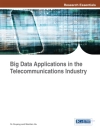IT changes everyday’s life, especially in education and medicine. The goal of ITME 2013 is to further explore the theoretical and practical issues of IT in education and medicine. It also aims to foster new ideas and collaboration between researchers and practitioners.
Содержание
The anti-apoptotic effect of transgenic Akt1 gene on cultured new-born rats cardiomyocytes mediated by ultrasound/microbubbles destruction.- Logic Operation in Spiking Neural P System with Chain Structure.- A Mathematical Model of the Knee Joint for Estimation of Forces and Torques during Standing-up.- Adaptive Online Learning Environment for Life-Long Learning.- A Membrane Bin-Packing Technique for Heart Disease Cluster Analysis.- Chap. Teaching Chinese as a Foreign Language Based on Tone Labeling in the Corpus and Multi-model Corpus.- A systematically statistical analysis of effects of Chinese Traditional Setting-up Exercise on healthy undergraduate students.- Sample-independent Expression Stability Analysis of Human Housekeeping Genes Using the Ge NORM Algorithm.- Development of A One-step Immunochromatographic Strip Test for Rapid Detection of Antibodies against classic swine fever.- Cramer-Von Mises statistics for testing the equality of two distributions.
Об авторе
Shaozi Li currently serves as the Chair and Professor of Cognitive Science Department of Xiamen University, the Vice Director of Fujian Key Lab of the Brain-like Intelligence System, and the Vice Director and General Secretary concurrently of the Council of Fujian Artificial Intelligence Society. He is also the senior Member of CCF(China Computer Federation) and ACM, the Member of IEEE. His research interests cover Artificial Intelligence and Its Applications, Moving Objects Detection and Recognition, Machine Learning and Computer Vision, Natural Language Processing and Multimedia Information Retrieval, Network Multimedia and CSCW Technology and others. He has published nearly 150 papers in journals and proceedings, including Machine Learning, Electronic Letters, Soft Computing, Multimedia Tools and Applications, International Journal of Computational Intelligence System, International Journal of Distance Education Technology, Chinese Journal of Electronics, Journal of Software, and etc.
Qun Jin is a professor at the Networked Information Systems Laboratory, Department of Human Informatics and Cognitive Sciences, Faculty of Human Sciences, Waseda University, Japan. He has been engaged extensively in research works in the fields of computer science, information systems, and social and human informatics. He seeks to exploit the rich interdependence between theory and practice in his work with interdisciplinary and integrated approaches. He has published several academic books and more than one hundred refereed papers in journals and proceedings, including ACM and IEEE Transactions. His recent research interests cover ubiquitous computing, human-centric computing, human-computer interaction, behavior and cognitive informatics, data integration and information fusion, life logs and big data mining, user modeling, information search and recommendation, e-learning, e-health, and computing for well-being.
Dr.Xiaohong Jiang iscurrently a full professor of Future University Hakodate, Japan. Before joining Future University, Dr.Jiang was an Associate professor, Tohoku University, from Feb.2005 to Mar.2010. Dr. Jiang’s research interests include computer communications networks, mainly wireless networks and optical networks, interconnection networks for massive parallel computing systems, routers/switches design for high performance networks, network coding for wireless networks, Vo IP over wireless networks, network security, VLSI/WSI systems, etc. He has published over 220 technical papers at premium international journals and conferences, like IEEE/ACM Transactions on Networking, IEEE Journal of Selected Areas on Communications, IEEE Transactions on Parallel and Distributed Systems, IEEE Transactions on Communications, IEEE INFOCOM. Dr. Jiang was the winner of the Best Paper Award and Outstanding Paper Award of IEEE WCNC 2012, IEEE WCNC 2008, IEEE ICC 2005-Optical Networking Symposium, and IEEE/IEICE HPSR 2002. He is a Senior Member of IEEE, a Member of IEICE.
Professor James J. (Jong Hyuk) Park received his Ph.D. degree in Graduate School of Information Security from Korea University, Korea. From December, 2002 to July, 2007, Dr. Park had been a research scientist of R&D Institute, Hanwha S&C Co., Ltd., Korea. From September, 2007 to August, 2009, He had been a professor at the Department of Computer Science and Engineering, Kyungnam University, Korea. He is now a professor at the Department of Computer Science and Engineering, Seoul National University of Science and Technology (Seoul Tech), Korea. Dr. Park has published about 100 research papers in international journals and conferences. He has been serving as chairs, program committee, or organizing committee chair for many international conferences and workshops. He is a president of the Future Technology Research Association International (FTRA) and Korea Information Technology Convergence Society(KITCS).












